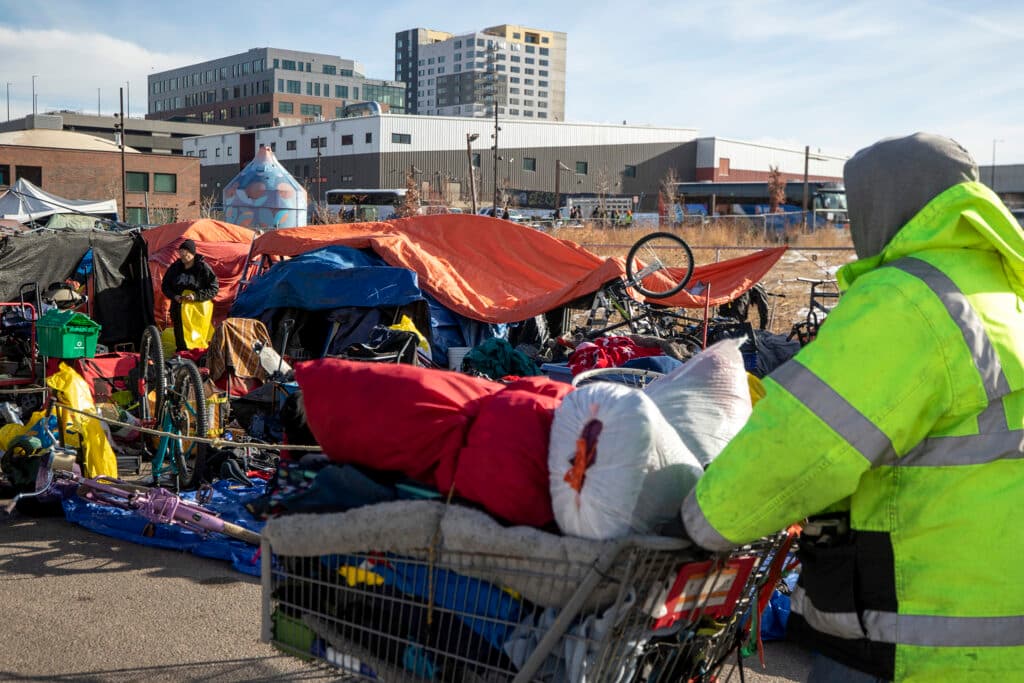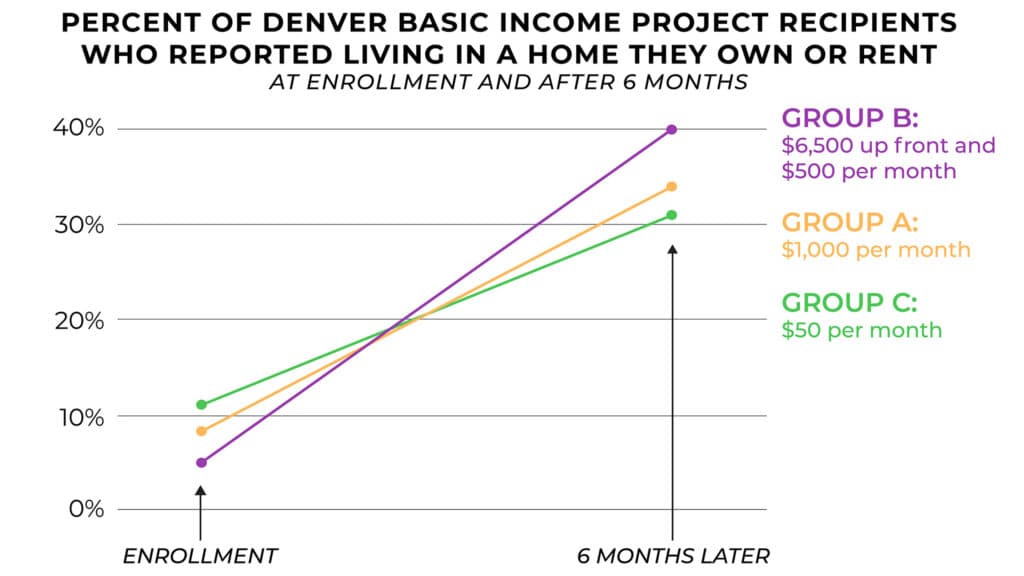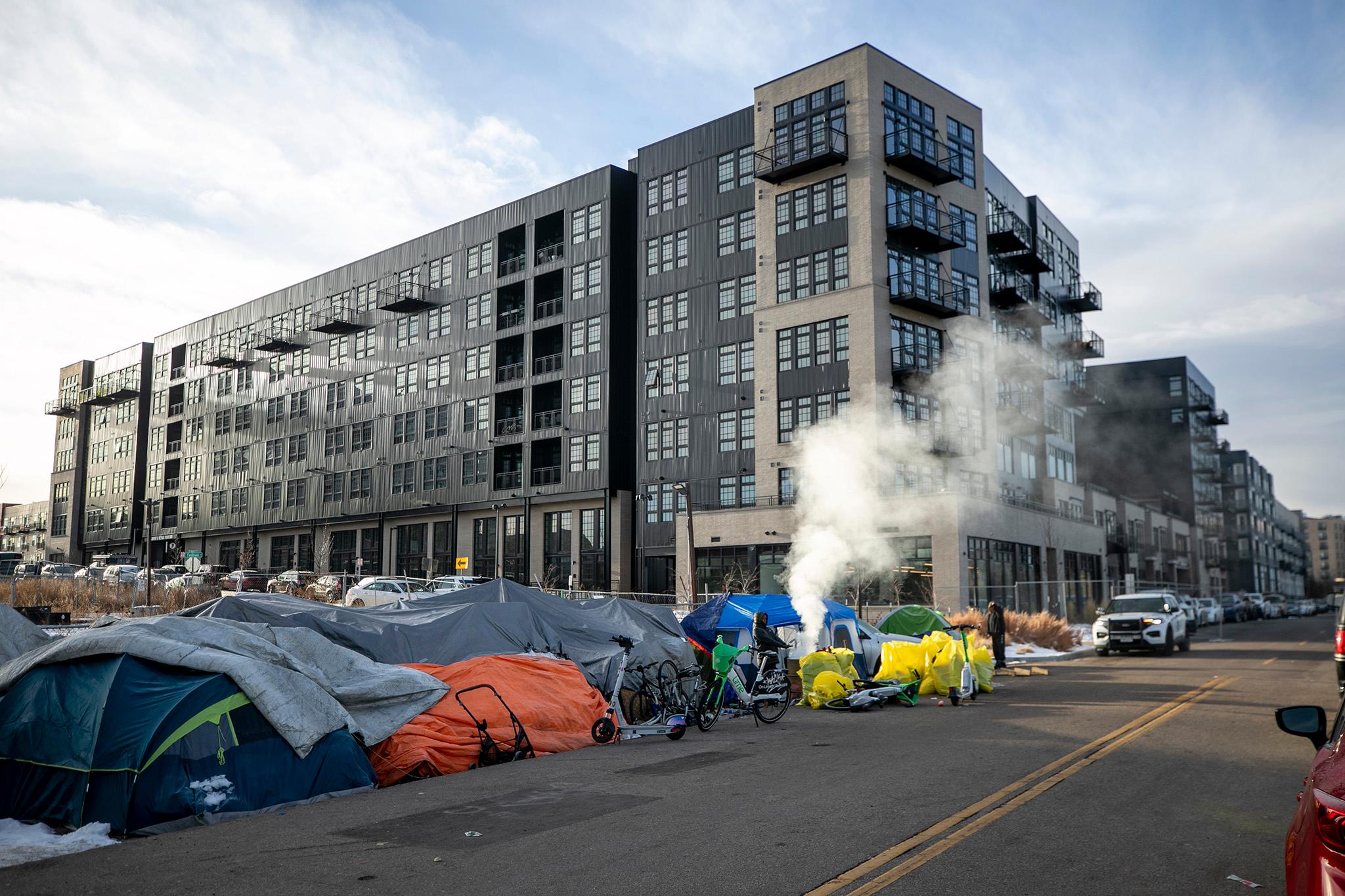The Denver Basic Income Project will continue handing out direct cash payments through July with help from city funding.
The program will receive $2 million in funding, after City Council approved a contract agreement between the city and the project on Tuesday.
The funding contract stems from councilmembers pushing the Mayor’s office to add the project to the 2024 budget. Councilmembers originally asked for $4 million and the Mayor’s office committed to half of the request.
The program began handing out direct cash payments to those experiencing homelessness in November 2022. Since then, the program has spent about $6.8 million, giving more than 800 people cash payments ranging from $50 to $1,000 per month. The payments come with no spending restrictions or requirements, a change from typical government support programs.

The idea behind the Basic Income Project is that giving people money and trusting that they know what to do with that money will benefit the unhoused. It’s a program, and experiment, occurring in several metropolitan cities across the country.
“Policy so often has to be written broadly, in black and white, and is too often not considerate of people’s individual needs nor their current circumstances,” Councilmember Shontel Lewis said during Tuesday’s council meeting. “I appreciate that the Denver Basic Income Project provides the autonomy that folks so need and so deserve to be able to determine what basic needs they have with basic income.
So far, the results of the Denver project seem successful.
The program partnered with researchers at the University of Denver’s Center on Housing and Homelessness Research to measure the impact of the payments when it comes to housing and job stability. The research period stemmed from November 2022 to November 2023.
Mid-program results, released in October 2023, showed some success with rates of homelessness decreasing and employment rates increasing. Researchers will release the full report in June.

According to Project spokesperson Abby Leeper Gibson, the additional funding will help the program continue handing out cash until July.
In January, the program was given additional funding from The Colorado Trust and an anonymous donor. There was a lapse in funding causing payments to stop this past November but the payments later continued in February.
Leeper Gibson said there will be an amendment to the study noting the halted payments and how that affected participants.
Currently, the program isn’t accepting new applicants but they are allowing previous participants to re-enroll. Leeper Gibson said there are about 660 people in the program but as former participants come back, that number may increase.
The program is set to end in July but Leeper Gibson said the group is hoping additional funding sources come through, allowing the program to continue.
“We’re hoping to use this time to expand our donor base,” Leeper Gibson said. “The philanthropic community, especially the Colorado Trust, has really stepped up to support this and we’re hoping we can reach similarly minded organizations and organizations with similar values that want to be a part of this as well.”












